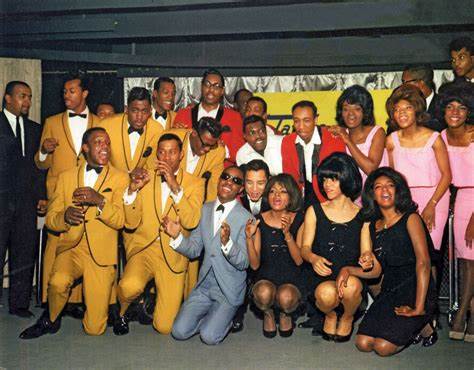In the bustling heart of Detroit during the late 1950s, something extraordinary was quietly taking shape. The city was alive with the hum of industry, particularly the rhythmic pulse of automobile factories, where thousands worked diligently to build the cars that defined American progress. Yet amidst this mechanical symphony, another, sweeter sound began to emerge—an innovative fusion of rhythm and blues, gospel, jazz, and pop. This new sound would soon resonate far beyond the streets of Detroit, captivating the hearts of listeners everywhere. At the core of this musical revolution was Berry Gordy Jr., a visionary whose dreams and determination would craft the legendary empire known as Motown Records.
Born in Detroit, Berry Gordy Jr. had always been inspired by the power of music. Early in his life, Gordy showed a penchant for songwriting and music production, but his path to success wasn't straightforward. He initially took a job at the Ford Motor Company, laboring on the assembly line. Here, Gordy learned invaluable lessons in precision, teamwork, and production efficiency—skills that would significantly shape his innovative approach to making music.
Driven by his passion for music, Gordy bravely left the security of his factory job. In 1959, with nothing more than an $800 loan from his family, Gordy established his first music label, Tamla Records. This small seed quickly blossomed into the Motown Record Corporation, becoming one of the most iconic music labels in history.
From its modest beginnings in a quaint house on West Grand Boulevard, aptly nicknamed "Hitsville USA," Motown wasn't just a label—it was a tightly knit community dedicated to creating extraordinary music. Gordy carefully nurtured his artists, emphasizing talent, charisma, and a polished image. His first major breakthrough came with Barrett Strong’s gritty hit, "Money (That's What I Want)," but it was only a glimpse of the magic to come.
Soon after, Motown witnessed an explosion of unparalleled talent. Smokey Robinson and The Miracles enchanted listeners with their smooth vocals and soulful lyrics. The Supremes, led by the captivating Diana Ross, became icons of elegance and charm, dominating the charts with timeless hits such as "Baby Love" and "Stop! In the Name of Love." Marvin Gaye, with his soul-stirring voice, brought profound depth and passion, while young Stevie Wonder dazzled audiences with his extraordinary musical genius. And then there were The Temptations, whose synchronized dance moves and harmonious voices made songs like "My Girl" immortal.
Gordy’s brilliance lay not just in discovering stars, but in cultivating them meticulously. Drawing inspiration from his factory days, he implemented a revolutionary "assembly-line" approach to music production. Teams of talented songwriters and producers, most famously Holland-Dozier-Holland, labored tirelessly to craft hits, carefully balancing catchy melodies, engaging rhythms, and heartfelt lyrics. Every element—from the precise choreography taught by Cholly Atkins to the impeccable wardrobes overseen by Maxine Powell—was refined until perfection.
Motown’s appeal was universal. At a time of intense racial segregation and social upheaval, Gordy’s label became a symbol of unity and hope. The Motown Sound transcended racial barriers, appealing equally to black and white audiences, contributing to significant shifts in American culture. Songs such as "Dancing in the Street" by Martha and the Vandellas became anthems of freedom and joyous rebellion, echoing through the turbulent 1960s.
Today, listening to Motown evokes profound nostalgia, instantly transporting listeners back to an era of groundbreaking music and cultural transformation. The sweet melodies and soulful harmonies capture the spirit of a time when music wasn't just entertainment—it was a powerful force for change and unity. Gordy’s vision didn’t merely create hit records; it defined an entire generation and laid a foundation that continues to influence artists today.
Berry Gordy Jr.’s journey from the bustling Detroit factories to the pinnacle of the music industry stands as an inspiring testament to the power of vision, perseverance, and belief. Decades later, the legacy of Motown remains vibrant, a timeless reminder that music truly is the universal language—connecting hearts, bridging divides, and inspiring dreams.
